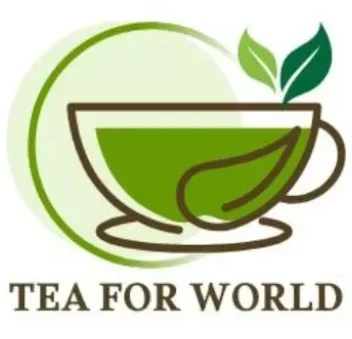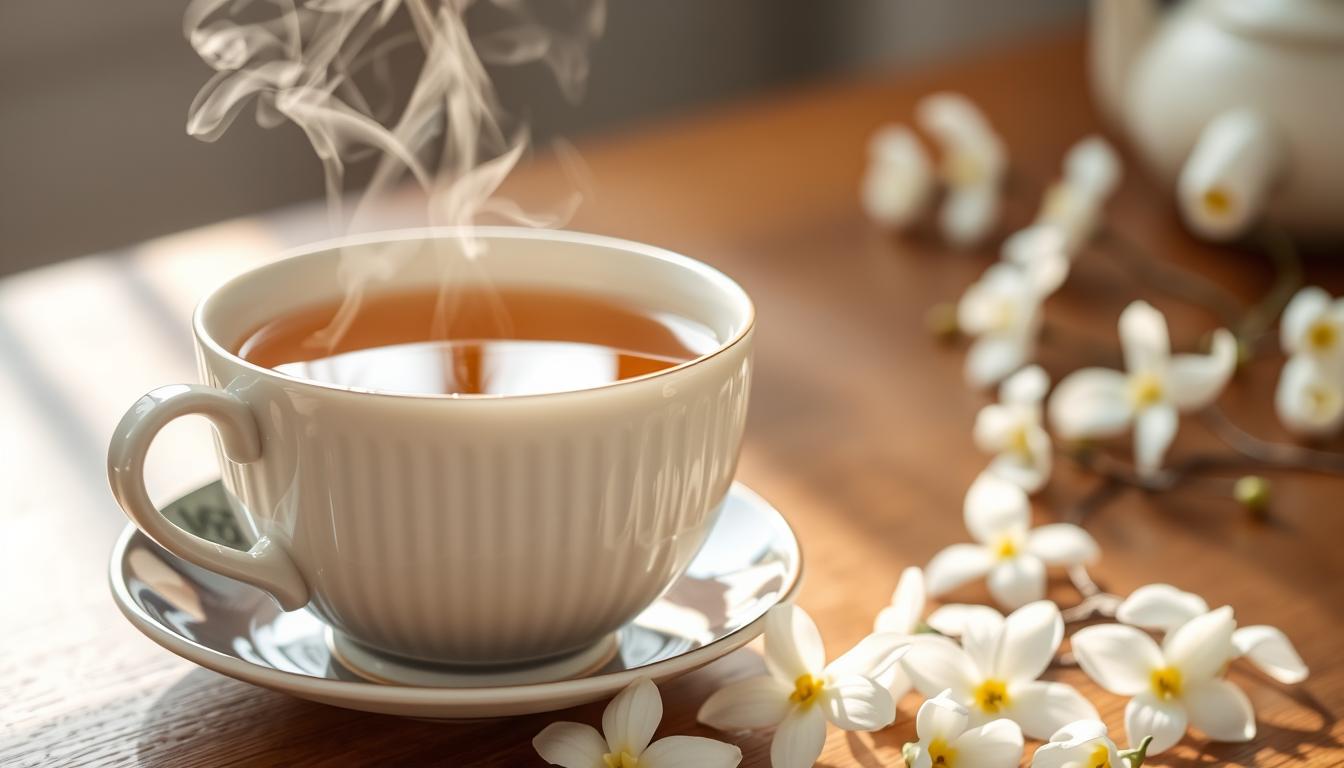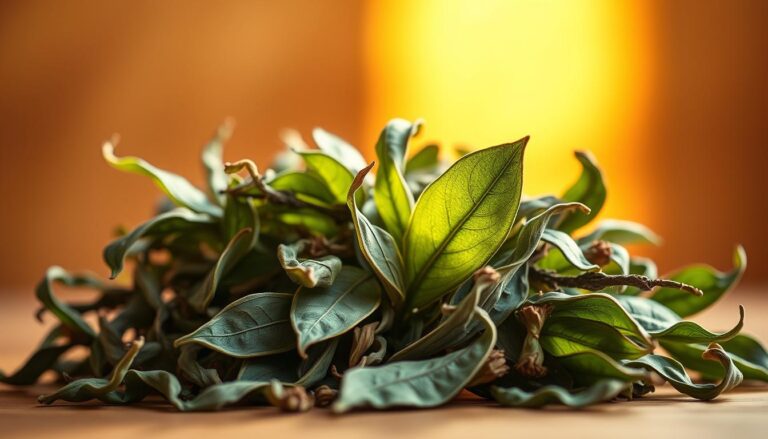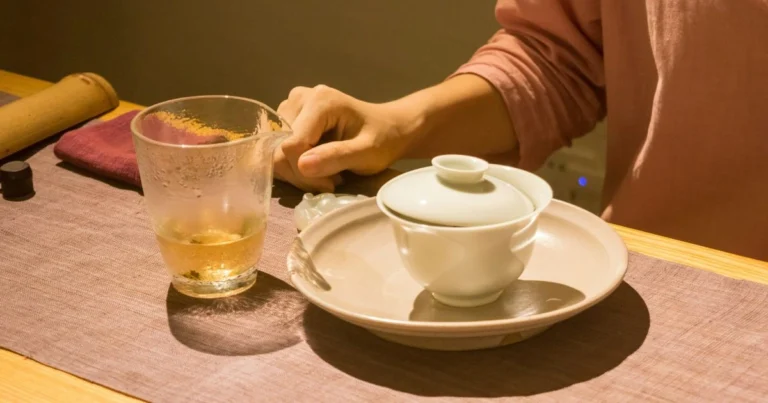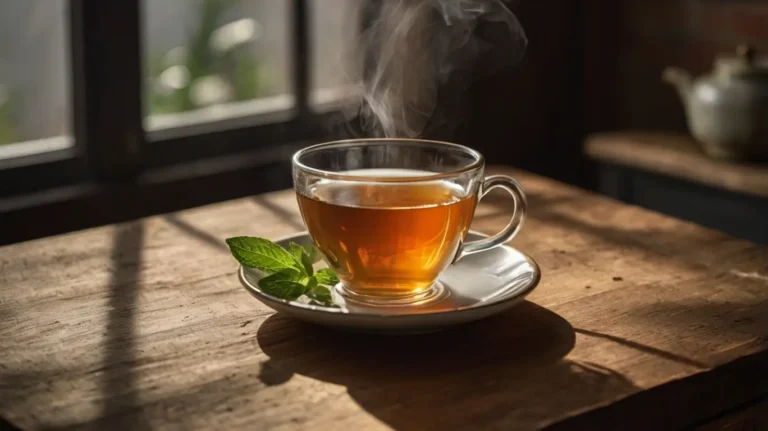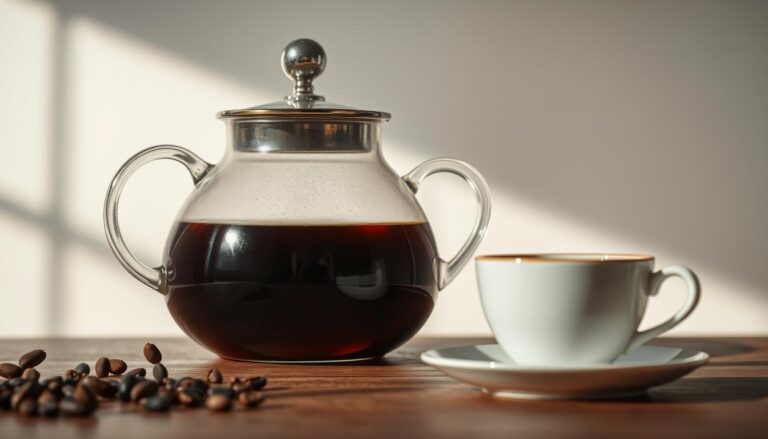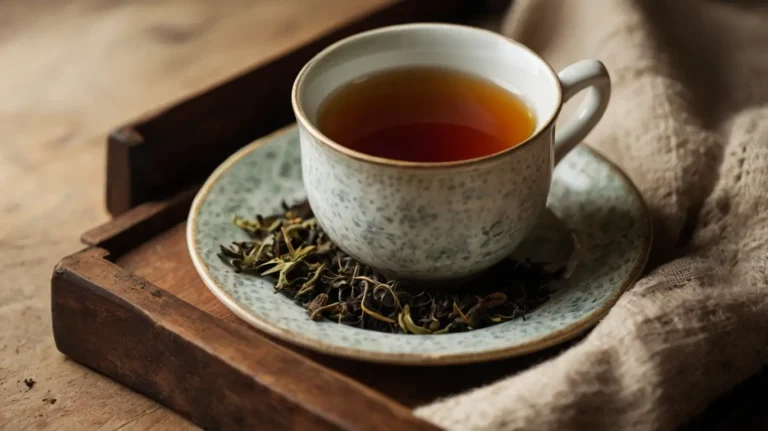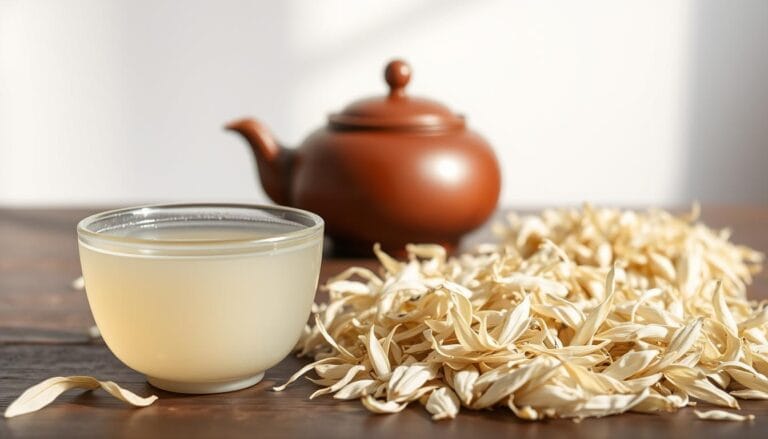Does Jasmine Tea Have Caffeine? 5 Quick Facts to Know
Does Jasmine Tea Have Caffeine? If you’re a tea lover, you may have wondered just how much of an energy kick your favorite floral brew can give you. Understanding the caffeine content in jasmine tea can change the way you enjoy it—whether you’re looking for a gentle morning lift or a mid-afternoon recharge.
Jasmine tea isn’t just fragrant and flavorful, it can also pack more caffeine than you might expect. The actual amount depends on factors like the type of base tea used and your brewing method. So before you sip, it’s worth asking: Does jasmine tea have caffeine—and how much?
Table of Contents
Key Takeaways
- Jasmine tea typically contains 25-90 milligrams of caffeine per cup
- Green tea-based jasmine tea has more caffeine than herbal versions
- Brewing time and temperature impact caffeine levels
- Caffeine content varies by tea base and preparation method
- Jasmine tea offers about 75% less caffeine than coffee
Understanding Jasmine Tea
Jasmine tea is a mix of tradition and flavor that has won hearts for centuries. It’s more than just a tasty drink. Its unique making and deep cultural roots make it special.
What Exactly is Jasmine Tea?
Jasmine tea is a scented tea made from green tea leaves and jasmine flowers. The green tea base, from the Camellia sinensis plant, is where most of the caffeine comes from. The amount of caffeine in jasmine tea can change based on several things.
- Originated in China during the Han Dynasty
- Traditionally made with green tea leaves
- Characterized by its distinctive floral aroma
The Artful Process of Creating Jasmine Tea
Making jasmine tea is a careful process that turns regular green tea into something amazing. Tea makers layer fresh jasmine flowers with tea leaves. This lets the flowers share their scent with the tea.
| Production Step | Description |
|---|---|
| Tea Leaf Selection | High-quality green tea leaves chosen |
| Flower Layering | Fresh jasmine blossoms placed with tea leaves |
| Scenting Process | Leaves absorb jasmine flower essence |
| Drying | Tea leaves dried to lock in flavor |
Learning about jasmine tea’s making will deepen your appreciation for it. Jasmine tea usually has 25-50 mg of caffeine per cup. This makes it a good choice for those who want a bit of caffeine without too much.
The Caffeine Content in Jasmine Tea
Knowing how much caffeine is in jasmine tea helps you choose better drinks. The amount of caffeine in jasmine tea changes based on the tea type and how it’s brewed. This makes jasmine tea a special and flexible drink.
Caffeine Levels Across Different Jasmine Tea Varieties
The caffeine in jasmine tea depends on the tea it’s made from. Each type of tea adds its own caffeine level to your jasmine tea:
- Green jasmine tea: 35-70 mg of caffeine per cup
- Black jasmine tea: 60-90 mg of caffeine per cup
- White jasmine tea: 30-55 mg of caffeine per cup
- Decaf jasmine tea: 0-2 mg of caffeine per cup
Comparing Jasmine Tea to Other Beverages
To understand jasmine tea’s caffeine, let’s compare it to other drinks:
| Beverage | Caffeine Content (mg) |
|---|---|
| Green Jasmine Tea | 35-70 |
| Black Coffee | 95-200 |
| Black Tea | 47-90 |
| Espresso | 63 |
The caffeine in your jasmine tea can change based on how long you brew it and the water’s temperature. Longer steeping and hotter water usually mean more caffeine. So, you can adjust your brewing to control how much caffeine you get.
Health Benefits of Jasmine Tea
Jasmine tea is more than just a treat for your nose. It’s a drink full of health perks. The mix of tea leaves and jasmine is a strong combo that boosts your health.
Jasmine tea’s benefits go beyond its tasty flavor. It’s a great pick for those who care about their health. Even though it has caffeine, it offers many wellness benefits.
Powerful Antioxidant Properties
Jasmine tea is full of antioxidants. These help protect your body from harmful free radicals. They do many good things, like:
- Reducing inflammation in the body
- Supporting heart health
- Potentially lowering cancer risk
- Protecting against cellular damage
Promoting Relaxation and Stress Relief
Jasmine tea’s benefits aren’t just about caffeine. Its gentle aroma and warm taste can calm your nervous system. It offers natural stress relief through:
- Soothing aromatherapy effects
- Mild relaxation of muscle tension
- Potential mood-enhancing properties
The blend of tea and jasmine is a holistic way to improve your health. It supports both your mind and body.
Is jasmine tea caffeinated? Yes, but it’s more than just caffeine. It’s a balanced drink that supports your overall health. It’s a tasty and healthy choice.
Factors Affecting Caffeine Levels
Exploring the caffeine in jasmine green tea reveals several key factors. When you ask “does jasmine tea have caffeine”, the answer is complex. Many elements can change the caffeine in your tea.
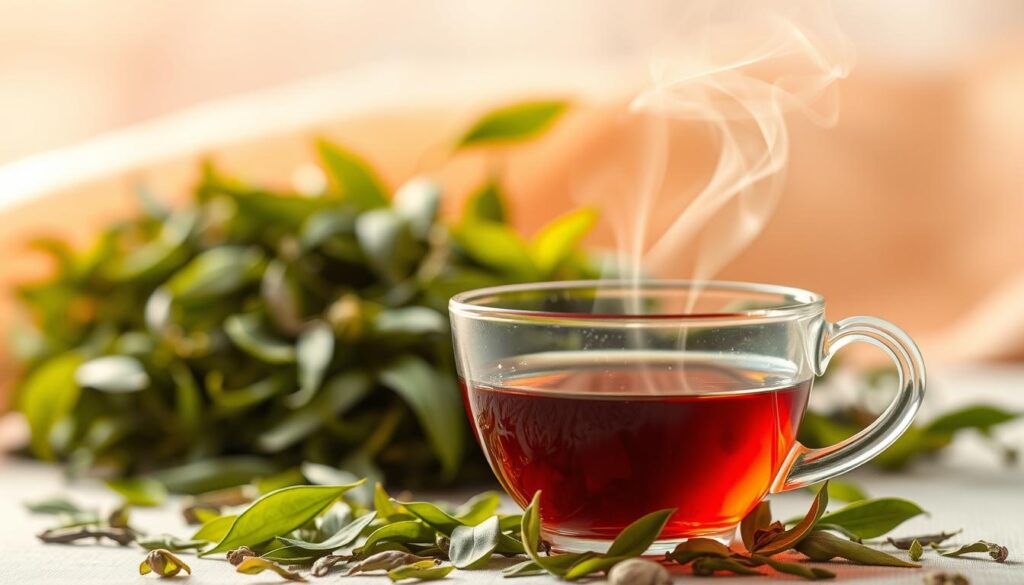

- Base green tea variety
- Brewing technique
- Water temperature
- Steeping duration
- Quality of tea leaves
Type of Green Tea Base
Different green teas used in jasmine tea have different caffeine levels. Sencha and Gunpowder green teas usually have more caffeine. This is compared to softer varieties like Dragonwell.
Brewing Time and Temperature Impacts
Your brewing method affects the caffeine in jasmine green tea. Longer steeping and hotter water get more caffeine out of the leaves. It’s best to brew between 160-180°F for 2-3 minutes to control caffeine.
Knowing these factors lets you adjust your jasmine tea to your liking. You can manage its caffeine content based on your taste.
Potential Side Effects of Caffeine in Jasmine Tea
Knowing how much caffeine is in jasmine tea is key to staying healthy. Jasmine tea has many benefits, but too much can cause side effects you should know about.
Caffeine in jasmine tea can affect your body in several ways. How you react to it depends on your sensitivity. Everyone’s body is different.
Sleep Disruption and Insomnia Risks
The caffeine in jasmine tea can mess with your sleep. Drinking it too close to bedtime can cause sleep problems:
- Difficulty falling asleep
- Reduced sleep quality
- Increased nighttime wakefulness
- Shortened total sleep duration
Potential Cardiovascular Impacts
Your heart rate might speed up from the caffeine in jasmine tea. Some people might feel:
- Temporary heart rate acceleration
- Mild increases in blood pressure
- Feeling of heightened alertness
| Caffeine Sensitivity Level | Potential Side Effects | Recommended Action |
|---|---|---|
| Low Sensitivity | Minimal disruption | Monitor intake |
| Medium Sensitivity | Mild sleep disturbances | Limit afternoon consumption |
| High Sensitivity | Significant sleep/heart rate changes | Consult healthcare provider |
People with health issues should watch their jasmine tea caffeine intake closely. Always talk to a healthcare professional if you’re worried about side effects.
Can You Find Caffeine-Free Jasmine Tea?
If you’re sensitive to caffeine or want to enjoy jasmine tea without the stimulating effects, you have several delightful options. Knowing the jasmine tea caffeine amount helps you choose the right drink.
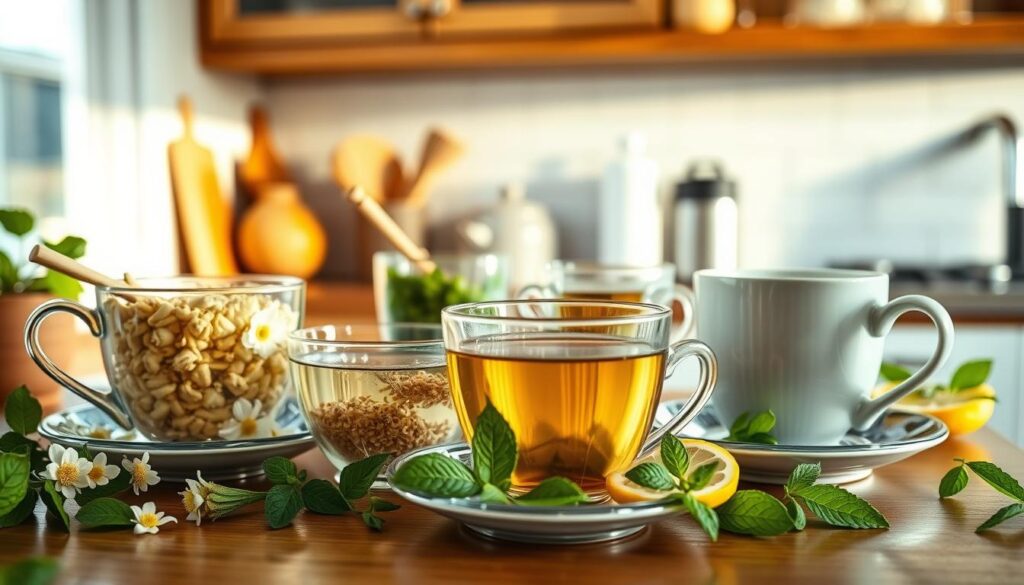

Caffeine-free jasmine tea comes in different varieties that can satisfy your taste buds while avoiding caffeine. When exploring if jasmine tea is caffeinated, you’ll find many alternatives:
- Jasmine Tisane: A pure herbal tea made exclusively from jasmine flowers
- Decaffeinated jasmine green tea with minimal caffeine (0-2 mg per cup)
- Herbal blends featuring jasmine flavor without traditional tea leaves
Exploring Herbal Alternatives
Herbal jasmine teas offer a caffeine-free experience. These blends use natural jasmine flowers for a fragrant and soothing drink. You can find tisanes that capture the delicate floral essence without any caffeine.
Understanding the Decaffeination Process
Decaffeination removes most caffeine from traditional tea leaves. The process uses water, carbon dioxide, or organic solvents to extract caffeine. This way, it preserves the tea’s flavor profile. This method ensures you can enjoy your favorite jasmine tea with significantly reduced caffeine levels.
Pro tip: Always check the packaging to confirm the caffeine content of your chosen jasmine tea.
Whether you prefer a completely caffeine-free option or a low-caffeine alternative, there’s a jasmine tea perfect for your lifestyle and health preferences.
Enjoying Jasmine Tea
Jasmine tea is more than just a drink; it’s an experience. Learning how to enjoy it can make you appreciate its unique taste and caffeine content.
Several factors affect how you enjoy jasmine tea. Timing and what you eat with it are key. The tea’s caffeine level is important for when to drink it.
Perfect Timing for Your Cup
Drink jasmine tea at the right times for the best effect:
- Mid-morning for a gentle caffeine boost
- Early afternoon to keep your energy up
- Avoid it near bedtime because of caffeine
Delicious Food Pairings
Pair jasmine tea with these tasty foods:
- Light pastries with a hint of sweetness
- Seafood with light flavors
- Mild cheeses that won’t clash with the tea
Enhancing Your Tea Experience
Try these to make your jasmine tea even better:
- Add a bit of honey to balance the caffeine
- Include fresh mint leaves for extra freshness
- Use a small amount of milk for creaminess
The caffeine in jasmine tea can change based on how you brew it. Adjust your brewing to fit your taste and caffeine sensitivity.
Popular Brands of Jasmine Tea
Discovering the right jasmine tea can change how you enjoy tea. The world of jasmine tea is full of flavors. Some brands are known for their high quality and traditional ways of making tea.
Fuzhou, known as the ‘City of Jasmine’ in southeastern China’s Fujian province, is the heart of premium jasmine tea. When looking at jasmine tea caffeine effects, picking the right brand is key.
Top Recommendations for Quality Jasmine Tea
Looking for the best jasmine tea means finding brands that value authenticity and care. Here are some top picks:
- Harney & Sons Dragon Pearl Jasmine Tea
- Teavana Imperial Jasmine Loose Leaf Tea
- Republic of Tea Jasmine Green Tea
Understanding Ethical Sourcing Practices
When you’re wondering if jasmine tea has caffeine, knowing where it comes from is also important. Ethical sourcing means better quality and supports green practices.
| Brand | Sourcing Region | Ethical Certification |
|---|---|---|
| Harney & Sons | Fujian, China | Fair Trade Certified |
| Teavana | Multiple Regions | Sustainable Agriculture Network |
| Republic of Tea | China, Japan | Rain Forest Alliance |
“The best jasmine tea tells a story of tradition, craftsmanship, and cultural heritage.” – Tea Master Lin Wei
Choosing brands with clear sourcing and traditional methods means better jasmine tea. It also supports responsible tea farming.
Jasmine Tea’s Popularity in the U.S.
Tea drinking in the United States is changing fast. While coffee is still the top choice, jasmine tea is becoming more popular. Its unique taste and health benefits, like its caffeine content, are drawing in more fans each year.
The rise of jasmine tea shows a bigger trend in what people want to drink. Americans are looking for healthier, more varied drinks that taste good and are good for them.
Current Tea Consumption Trends
Recent studies give us interesting facts about tea drinking:
- Specialty tea sales have grown by 15% annually
- Millennials and Gen Z are driving the jasmine tea caffeine content awareness
- Organic and premium tea selections are gaining popularity
Cultural Significance
Jasmine tea is more than just a drink in the United States. It shows a growing love for international foods and wellness. The tea’s Asian roots connect with Americans looking for real, meaningful drinks.
| Year | Tea Consumption Growth | Jasmine Tea Market Share |
|---|---|---|
| 2018 | 8% | 2.5% |
| 2020 | 12% | 4.2% |
| 2022 | 15% | 6.7% |
The numbers show more Americans are interested in jasmine tea. This reflects a bigger move towards diverse and healthy drink choices.
Conclusion: Should You be Concerned About Caffeine?
Knowing how much caffeine is in jasmine tea can guide your drink choices. Jasmine tea has caffeine, but it’s usually not too much. Whether it’s right for you depends on your health and how you react to caffeine.
The amount of caffeine in jasmine tea changes based on how you brew it and the tea type. Most can enjoy it without worry. But, if you’re pregnant or really sensitive to caffeine, talk to a doctor about how much is safe for you.
Final Thoughts on Wellness
Trying jasmine tea can be a fun way to spice up your taste and health routine. It comes in green or black tea, each with its own benefits. Start with a small amount and see how your body reacts.
Your Tea Adventure Begins
Don’t let caffeine worries stop you from trying jasmine tea. Look into different types, try different ways of brewing, and find the tea that you love. Your ideal cup of tea is waiting for you!
Does Jasmine Tea Have Caffeine?
